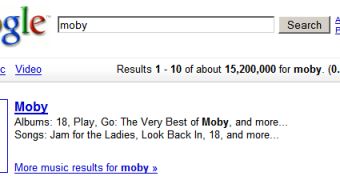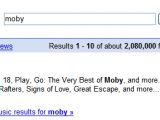Just last week I was talking about Google's all-knowing-all-encompassing algorithm that robbed AdWords users of their choice to advertise wherever they pleased. The search algorithm has also been worked upon to be better and more reliable. And while in principle that's good, in practice many users might think the exact opposite because of the number of results returned, which is way lower than those of all the other important search engines.
Thanks to Ionut Alex. Chitu, who showcased the recently-launched bar at the time that used gradients in May and made a screenshot, now the same query returns no fewer than 13 million less results. I think that's way too high a drop in numbers. Come on now, seriously? Yahoo returned 18 million results, Microsoft 7,73 million and Ask.com "only" 4 million, but that's still almost twice as many as world-leading search engine Google shows.
The funny thing about it is that as long as the queries are short, made out of fewer words (one or two tops), Google will trail the others, but when the queried terms multiply, the Mountain View based companies' search engine comes on top of the rest. That, in my book, makes Google still the place to go to for more accurate information on something that you're interested in.
Related to this, Matt Cutts explained that Google was starting to treat subdomains the same way it treated directories for some queries: "For several years Google has used something called host crowding, which means that Google will show up to two results from each hostname/subdomain of a domain name. That approach works very well to show 1-2 results from a subdomain, but we did hear complaints that for some types of searches (e.g. esoteric or long-tail searches), Google could return a search page with lots of results all from one domain. In the last few weeks we changed our algorithms to make that less likely to happen in the future", he said.

 14 DAY TRIAL //
14 DAY TRIAL // 
